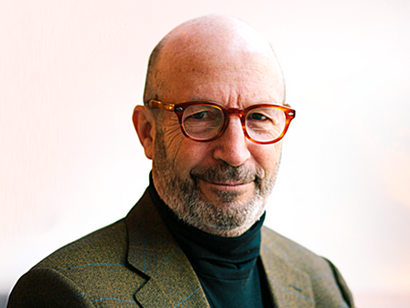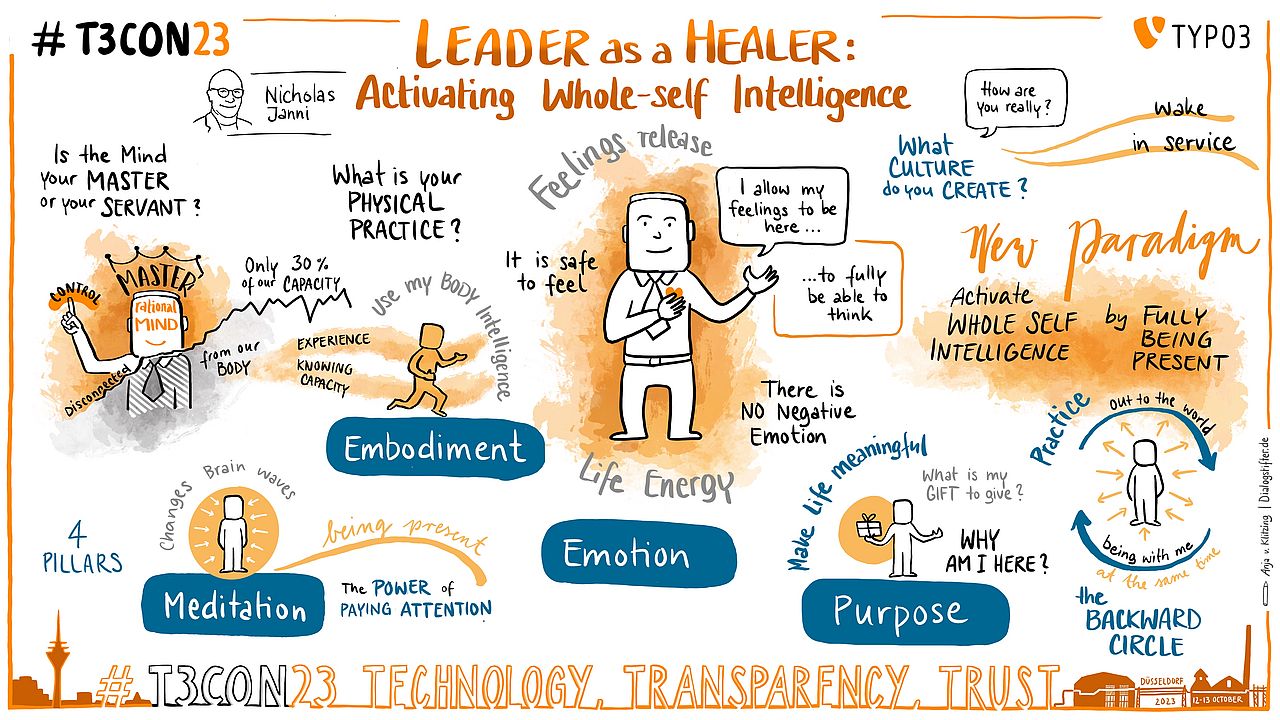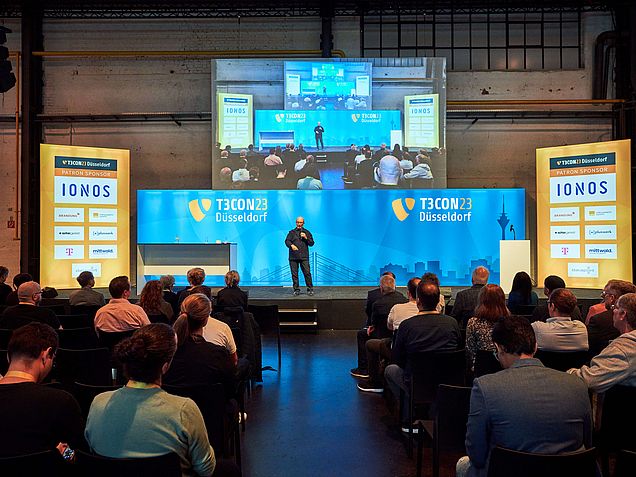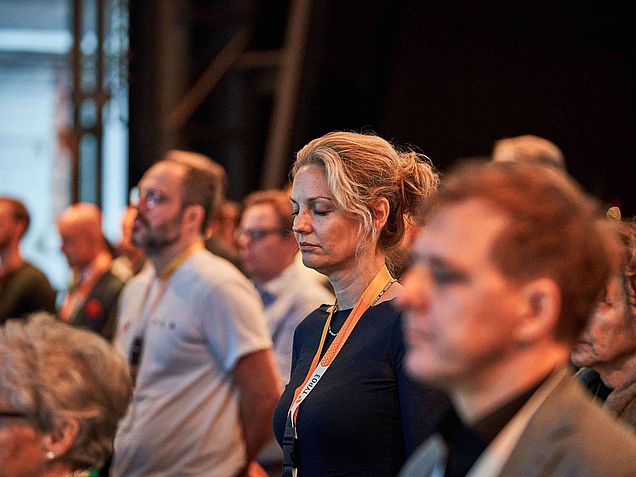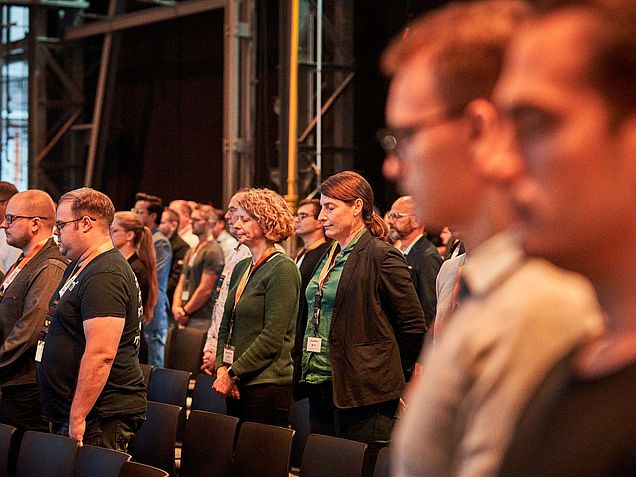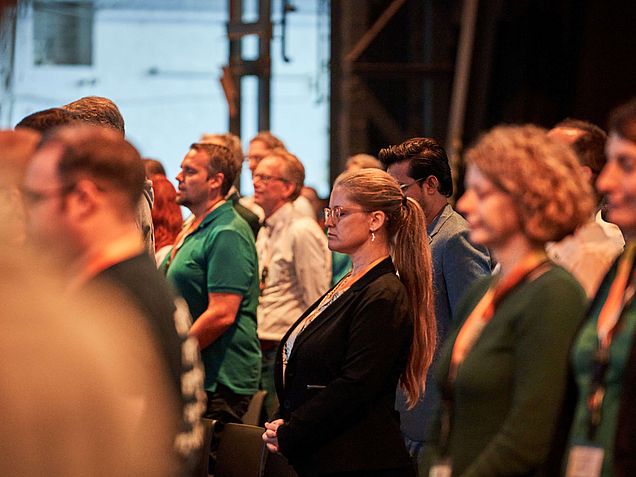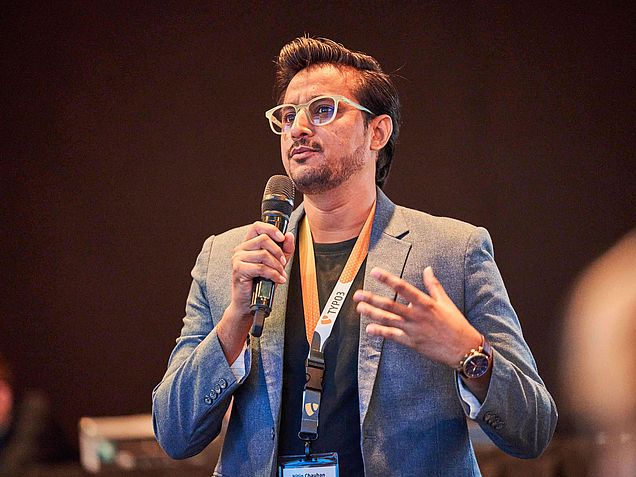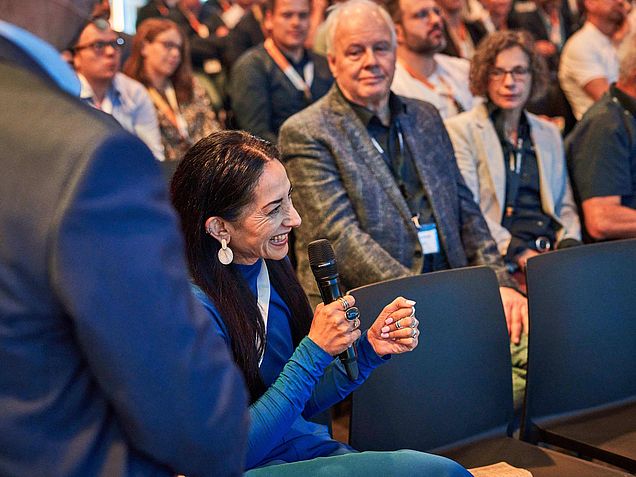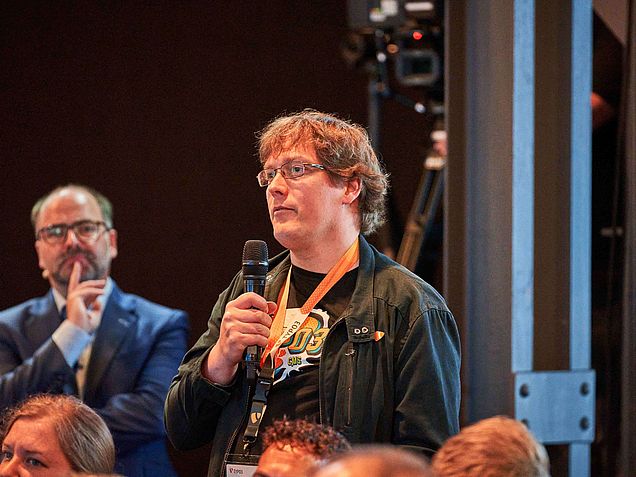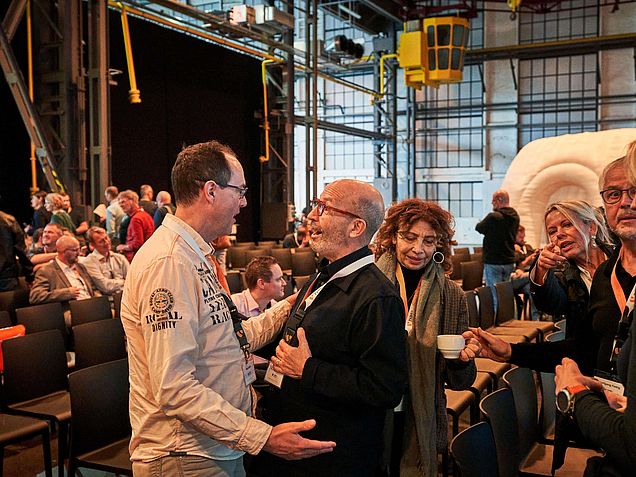
T3CON23 Recap—Keynote: Leader as Healer
Have you ever been in a meeting where suppressed anxiety clouds everything, even the leader’s judgment? Leaders without trained awareness, emotional literacy, and meaningful purpose are poor organizational healers and can hinder a healthy workplace culture from developing.
T3CON23 opened with a keynote by award-winning business book author and leadership consultant Nicholas Janni under the title Leader as Healer. The talk focused on how leaders can develop their inner lives and activate what he calls whole-self intelligence to create more humane, connected, and purpose-driven organizations.
Attendees described the talk as “an absolute privilege to listen to” and “a great keynote.” It set the tone for a lively program that paired technical topics with business insights and global ideas, in this case showing the importance of spirituality and well-being within the tech world.
Read on for a full recap, or catch up on what else you missed at T3CON23.
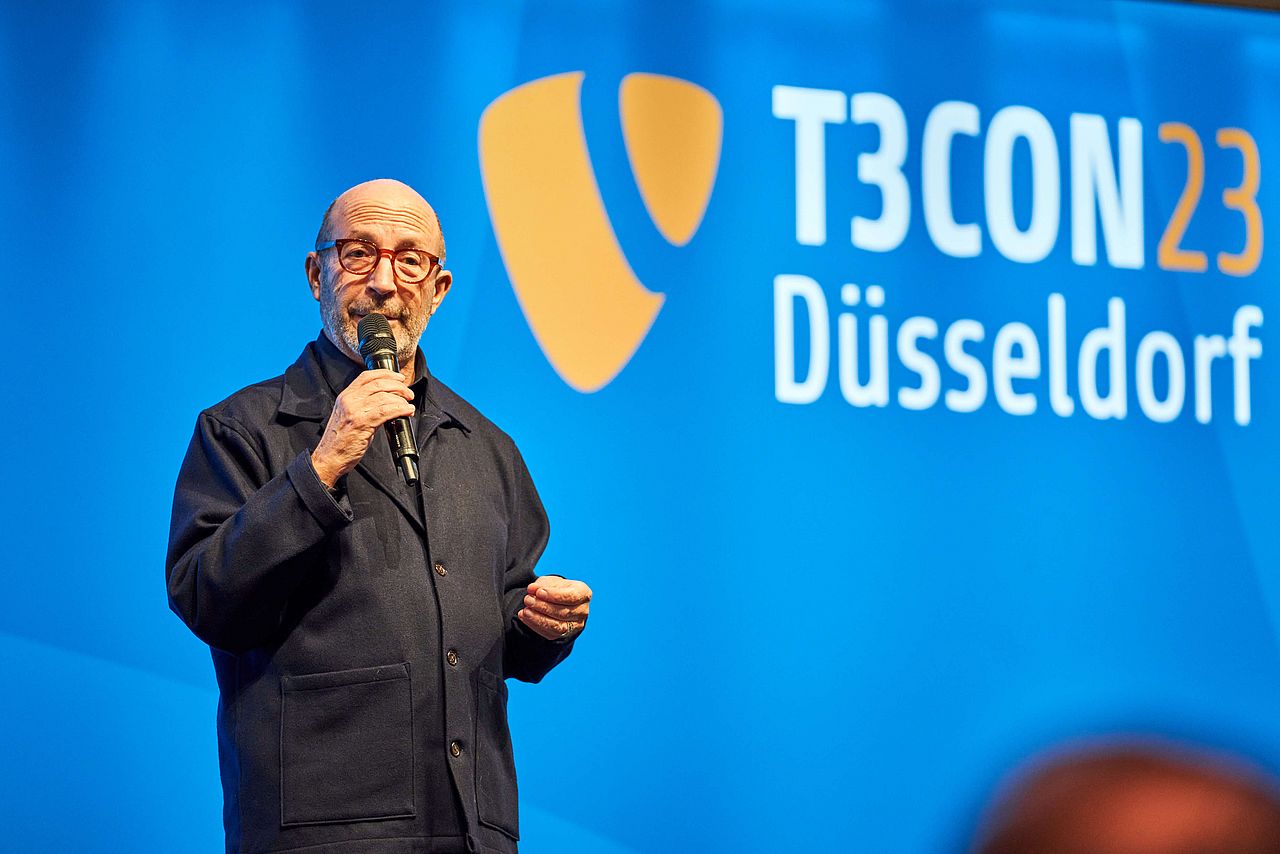
Thinking vs. whole-self intelligence
The talk was an invitation to unlock whole-self intelligence that is not focused upon a narrow conception of thinking. “Is the mind your master or your servant?” Janni asked, before pointing out that the idea of mind as master means “whole other parts of us have more or less gone offline.”
His thesis: We use only 30% of our intelligence. “We think, we think, we think, we think,” he said. “We try to solve all our solutions by thinking alone. But the complexity and the instability of the world does not respond to thinking alone.”
“I’m not saying we should abandon the intellect. I’m saying that we need to bring back the parts that we have exiled,” he stressed.
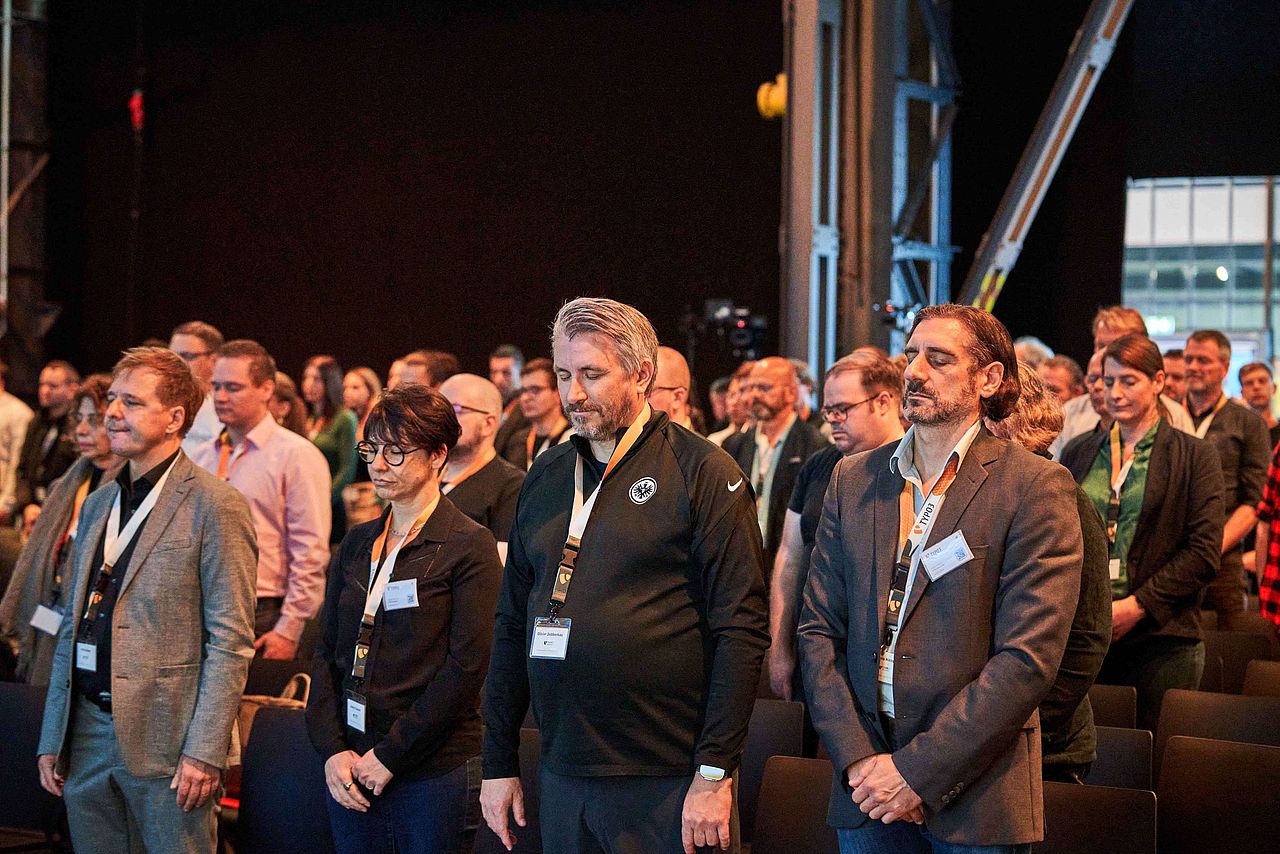
To show what he meant, Janni invited everyone to engage in a meditation exercise. Paying attention to your breathing and noticing the sensations in your body demonstrates that “you can choose to pay attention”.
Paying attention is a powerful developmental tool, and very different from thinking. It is less self-conscious and more focused on the task at hand. Modern neuroscience confirms that people’s brain-wave state changes when they meditate or pay attention and focus on a particular activity.
“Sports people who are ‘in the zone’, when we are in what in psychology is called the flow state, have alpha wave frequency. We also have it the moment we start to pay attention. And this is why it’s so important to pay attention. We change our brainwave frequency — we change our experience of being here — because we break the fixation with thinking.”
This kind of attention, Janni explained, is the first of four pillars of whole-self intelligence.
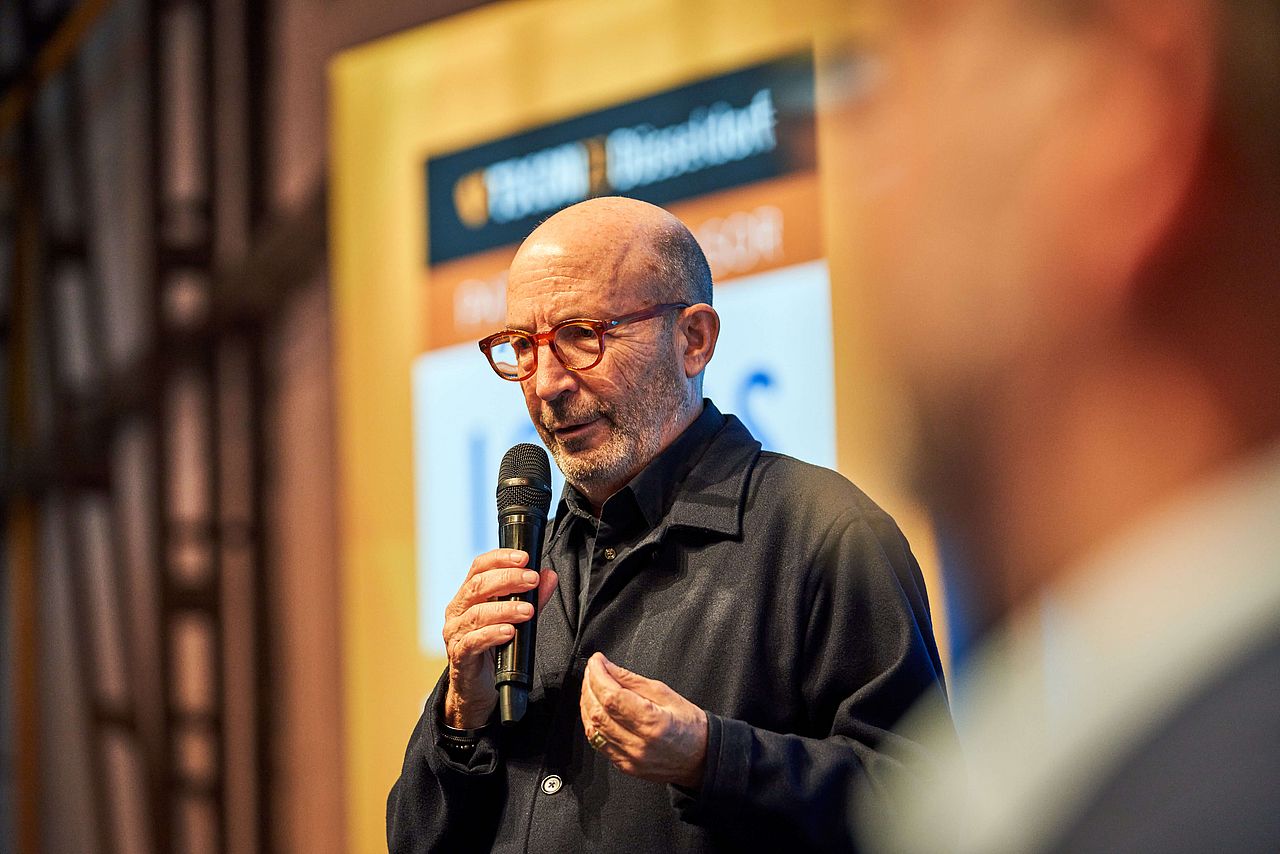
The four pillars of whole-self intelligence
Janni focused on four key aspects of whole-self intelligence: attention, embodiment, emotion, and purpose.
- Attention: The ability to move beyond self-conscious thinking, into deeper awareness, can be improved by meditation. However, by meditating, “We’re not trying to stop thinking. That’s the first illusion,” Janni said. “Why stop thinking? Thinking happens. But we’re trying to simply pay attention. And if we do that regularly — morning, after morning, after morning — we start to notice, little by little, that we feel more present. […] Meditation is a fundamentally important discipline. As is the practice of paying attention throughout the day.”
- Embodiment: We must connect with the intelligence of the body. Many people realize that they have good ideas while exercising. As Janni explained, “We experience the world through our body. We do not experience the world through thinking. Have we realized that? Thinking does not feel anything. Thinking is always thinking about something. It’s got nothing to do with experience. I can’t experience you with my thinking. That’s important. I can only experience you when I’m rooted in my body.”
- Emotion: Allowing — rather than blocking — emotions is particularly important in leadership roles. Janni talked about how people feel better when they accept their negative emotions and allow them to pass, rather than repress them: “All emotion passes when we feel it. If you go to a primary carer and say, ‘I’m frightened’, and they’re busy, they don’t have space for you. Or even at worst, they tell you it’s stupid to feel frightened. You have only one choice: I have to stop this. I have to stop this feeling. I can’t manage it on my own.”
Purpose: We need a sense of purpose to have any real motivation to do what we want. It connects us with a sense of meaning: “Why am I here? Why are we doing what we’re doing? What is my deep gift? What am I really good at? What do I love to do? And how is that contributing?” However, we often deceive ourselves and think that our purpose is to achieve something that others expect of us, like pursuing a particular career or promotion. We must ask ourselves: “What is the work that is mine to do?”
Practices for leaders
Janni translated the concept of whole-self intelligence into concrete recommendations that leaders can follow. Firstly, leaders need to embrace this expanded concept of intelligence, adopting consistent inner practices, like meditation, to stay present and not just reactive.
To create healthy work relationships, leaders must also create psychologically safe cultures,where people feel free to express difficult emotions.
Corporate cultures are implicitly defined by how freely and authentically team members can express themselves: “Any team culture is defined by the agreements under the table. What are we allowed to feel here? How are we allowed to be? What am I allowed to say? What does the leader accept? What is he or she comfortable with? That’s culture.”
To create a psychologically safe culture, Janni stressed, it is important to allow and accept negative emotions: “Anxiety doesn’t need fixing. If you’re in a meeting, and everyone is palpably anxious, and you’re the leader, simply say: ‘Let’s pause our meeting for a moment. Let’s just acknowledge that many of us are feeling anxious. I am. I’m losing sleep.’ — If you do this, you legitimize that I’m feeling anxious. What happens in that moment? I’m allowed to be anxious, it’s natural. The whole nervous system relaxes. But most importantly, our critical-thinking faculty works much better after that.”
Facing the world from a grounded position
The keynote ended with another meditation exercise. Janni called it “a mastery practice, [aiming,] without effort, to have inner attention and outer attention at the same time.”
Janni suggested two ways of facing the world: a forward circle and a backward circle. When I move forwards, “I breathe in, I come up, and I go out.” On the other hand, meeting the world in a backwards circle means shifting our attention downwards, feeling our base and our feet, remaining calm and grounded. “Anytime you notice you’re on a forward circle,” Janni advised, “get off!”
It was a fitting end to a demonstration of how embodied practices, emotional literacy, and purpose help leaders develop more humane, connected, meaningful organizations.
Paul Keller, CEO of sesamnet, remarked: “After being in a tantric seminar last weekend and experiencing everything Janni just was talking about, I want to bring in more of that thinking into my business life as well.”
Ensure to sign up for T3CON24 to see more amazing talks like this one.

